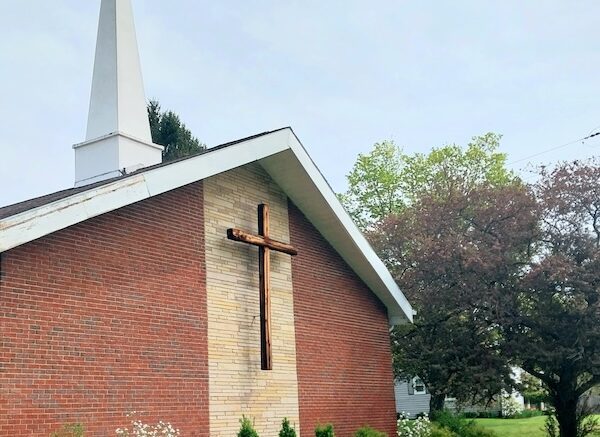By Dr. Matthew Thornton, DMIN, Pastor, Lakeview Chapel —
(Exodus 2: 15-17) Moses fled from Pharaoh and went to live in Midian, where he sat down by a well. Now, a priest of Midian had seven daughters, and they came to draw water and fill the troughs to water their father’s flock. Some shepherds came along and drove them away, but Moses got up and came to their rescue and watered their flock.
The story of Moses is familiar to many, both within and outside the church. We learn his story as part of Sunday school.
Often the “Ten Commandments” come on at Easter to tell the story of Israelite slavery and bondage in Egypt, the plagues, and the Passover. A recent messianic Passover Seder was held at Lakeview Chapel, with many powerful references to how the Passover points to salvation in Jesus Christ.
Jesus needs to be seen as an unlimited well of truth to be drawn from, as opposed to a finite truth that we can define. God is not limited; therefore, neither is the truth that He brings us. This truth is always found or reflected in the Word of God.
Jesus is a well of truth from which we must continually draw. God is this deep, deep well. There is no limit to the amount of truth that He can bring us if we will only come to Him again and again, drawing from this living water that is Jesus.
I am reminded that Jesus referred to Himself as the living water when He encountered the woman at the well in John 4.
(John 4: 13-14) Jesus answered, “Everyone who drinks this water will be thirsty again, but whoever drinks the water I give them will never thirst. Indeed, the water I give them will become in them a spring of water welling up to eternal life.”
Both of these cases present a continual return to a well.
In the example of Moses, the daughters return to the well overepeatedlyhey need to return every day because that is how they water their sheep. We have to see that this is a continual need to return for physical nourishment, water that brings and sustains life for the sheep. In turn, that brings life and livelihood to the priest of Midian and his family.
The sheep are his income, his property, and possession. They are vital to his survival. Because of this vital link between the sheep and the priest, water that sustains life must be continually drawn. This is not a one-time deal. The priest of Midian and his family knew that this was life. They knew the necessity of this water. Without this water, the sheep would die.
How do we look at our connection to God, livelihood, and life itself? Do people see a need to continually return to the well of Jesus, to end the living water and draw it forth? Do we need to drink of it, so that we may be nourished with life that ows from Him?
Do you see your life as absolutely having to go to that well everyday, just as part of your routine? Do you believe that you will die if you don’t continually return to the well of Jesus, like the daughters continually returned to the well to ensure their own livelihood?
Sheep at this time would have been like currency. They could be traded for goods or services. They could also provide meat, milk, and wool. They were highly valuable. If you owned a lot of sheep, you had power and wealth.
Do we see our need for Jesus as vital?
Vital connection with returning to Jesus as the unlimited well of truth, grace, love, and light is also directly connected to destiny. All of the amazing things that transpired in the life of Moses from this point on came from an encounter at the well.
Had the daughters not continually returned to the well to seek life-giving water for their sheep, Moses would not have crossed paths with them. This is a divine appointment. The well is where life was!
Moses crosses paths with the daughters of Midian out of a recognition of the life the water can bring to the sheep. As a result, Moses marries one of the daughters and makes his home in Midian.
He then encounters the Almighty at the burning bush. God reveals Himself as I AM. There, the mighty plans for Moses to free the Israelite people from slavery in Egypt are revealed. I often wonder if we understand the gravity of
what was happening. Egypt and the Pharaoh would have been one of the mightiest empires in history. Moses did not come against a king with an army, but He came with the unlimited power of an invisible, yet almighty God.
Coming continually to the well to water the sheep because it was as vital as breath connected Moses to his destiny. Moses was destined for great things by God, to free an entire nation from slavery.
Jesus is the well, He is the water of life. He is as vital as breathing, as goodness, as water, as shelter. You must see that this well is vital, and you must do the work of continually returning to the well. This has little to do with how we feel. It has everything to do with necessity.



Be the first to comment on "A Pastor’s Thoughts: ‘Return to the Water of Life’"